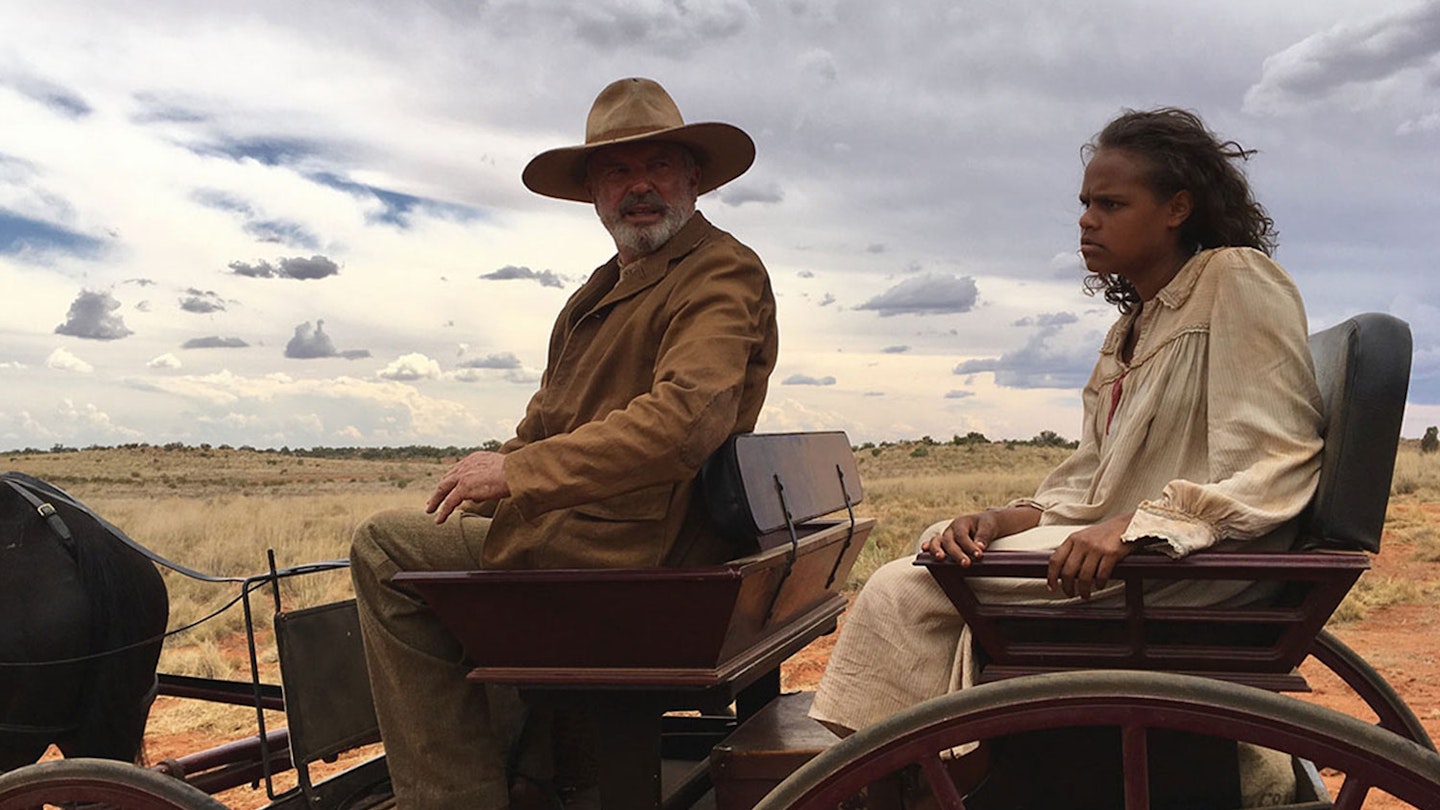Sparse, textured and bleak, director-cinematographer Warwick Thornton’s Sweet Country is a soulful slice of Australian history mixed with the tropes of a classic Western. In some ways, it is a spiritual prequel to Thornton’s 2009 debut Samson & Delilah, a contemporary look at Australia’s marginalised Aboriginal community. Both films feature couples on the run. Both offer depictions of a fractured national identity. Both are told with attention to detail and remarkable poise.
Sweet Country begins on a sustained close-up of a boiling cauldron as a violent fight between a white cattle station master and a black farm hand plays out on the soundtrack. It’s a sense of racial tension told through startling economy that courses through the whole film. Benevolent preacher Fred Smith (Sam Neill) lends his farmhand Sam Kelly (Morris) to new neighbour Harry March (Leslie) to work on his cattle station. The bigoted, boozed-up March terrorises Kelly and his wife, to the point where Kelly shoots him in self-defence. Knowing the consequences of an indigenous Australian killing a white man, Sam and Lizzie go on the lam. Soon, a group, lead by bastard-hard lawman Fletcher (Brown), butting heads with Smith, head out to track down the runaways.
It’s the performances that stick with you.
At that point, you would expect the start of a typical hunters-and-the-hunted dynamic. Instead, Thornton eschews tension-building techniques — there’s no score to hype the drama, the cross-cutting between posse and prey is leisurely — in favour of lavishing care on his characters. In its final act, it becomes a courtroom drama, albeit one that takes place on deckchairs in a dusty street with the gallows being erected before the verdict is reached.
It’s a difficult watch. The violence is brutal, over as quickly as it erupts, and the plot meanders, Thornton sewing in unnerving flashbacks and subliminal flash-forwards pointing to tragedies yet to unfurl. It’s also a tactile film. Shot in Central Australia’s MacDonnell ranges, it’s stark and stunning: you can almost feel the punishing sun, the sounds of hooves on salt flats hit on a gut level. It’s the sweep of Howard Hawks’ Red River but de-romanticised by Ozploitation steel.
But it’s the performances that stick with you. Neill offers compassion in abundance, Brown majors in toughness but is able to show Fletcher’s other colours in a scene where he imagines a different life. Yet the professionals are outdone by the amateurs. It’s Morris and Gorey Furber who steal the picture. Morris, especially, is dignified without being sanctimonious. He provides a centre of tenderness in an unforgiving world.

